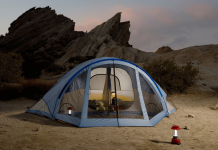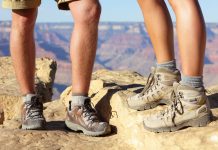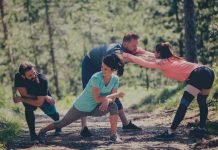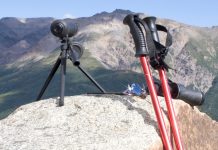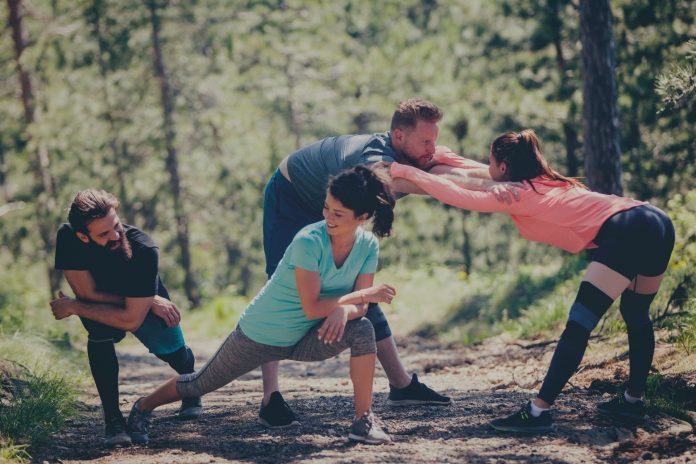People often read articles about how to get in shape for hiking and to think about who needs fitness for walking.
Let’s clear one thing hiking is not walking to a serene destination enjoying nature. The activity tests your strength, patience, balance, and endurance level at every turn.
If you plan for an adventure to the wild trails, it’s best to get into the hiking body shape.
How to prepare for a hike?
The training for hiking beginner program depends on some basic requirements such as;
- Day to day physical activity
- Standing
- Physical strength
- Hiking train you are planning to go.
- Hiking duration
Hiking trails vary, and so the fitness level suitable for these terrains. If you are planning to hike a uniform terrain, you will require a moderate fitness level. Bumpy or uneven hiking trails require high training and fitness levels.
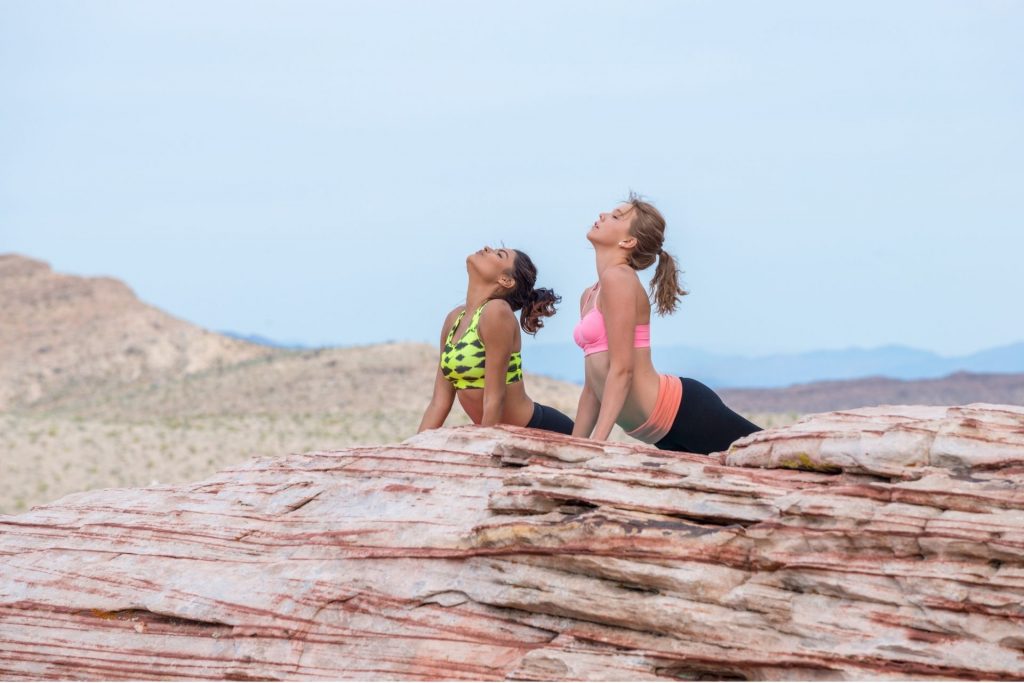
Fastest Route To Get In Shape For Hiking
Hiking is an outdoor activity that requires physical strength. It’s best to follow these useful tips to experience a smooth hike. Pick any trail of your choice, and these tips will help you get through them.
Strength Training Core Exercises For Hiking
Hiking requires an epitome strength level from homers. You don’t have to carry your weight and also your extra backpack load. The more hiking essentials you want to back, the more strength you will need.
It’s best to get some strength training for hiking. You don’t have to make or bring muscles, just night muscle strength to hold weight.
Weight lifting is the easier form of exercise to strengthen your legs and upper body. During hiking, your front thigh, calves, and hamstrings are proven to fatigue and cramps.
Concentrate on your muscles most used during hiking and engage the rest too. Here are some exercises to do while hiking and before.
Squats
Best for: Glutes quads and effective for back posture.
What to do:
- Carry about 5 pounds of weight
- Do at least ten repetitions
- Increase the weight gradually
- Try to do four sets with ten repetitions each.
- Repeat the exercise twice a week.
Lunges
Best for: Strengthening calves and quads
What to do:
- Carry dumbbell or some weight about 5 pounds
- Do four sets with ten repetitions each.
- Twice a week is enough for lunges.
Poor man’s leg curl
Best for: Lower body strengthening
What to do:
- Simple dynamic lay on your back
- Place one keg kn elevated bench
- Raise another leg as high as comfortable
- Lift your hips and simultaneously clunch your thighs and glutes
- Repeat with the other leg
- Three sets with 6 to 7 repetitions
Band walks
Best for: Hood endurance
What to do:
- Tie a resistance band loosely around legs above knees
- Walk in the sideways right or left direction.
- Keep the tension on the name.
- Repeat at least 7 to 8 in both direction
Shoulder Exercises
Best for: Shoulder strengthening to carry heavy back back
What to do:
- Start with 5 pounds weight
- Grab the weight and lift it above your head to the length of your arm
- Ge back to the initial position
- Try three sets with at least 8 to 9 repetitions.
- Increase the weight gradually.
Arms Exercises
Best for: Strengthening forearms, biceps, and triceps.
What to do:
- Do the exercise with lightweight
- Do push up, dumble lift, wrist curls, and pull-ups.
- Do three sets with eight repetitions.
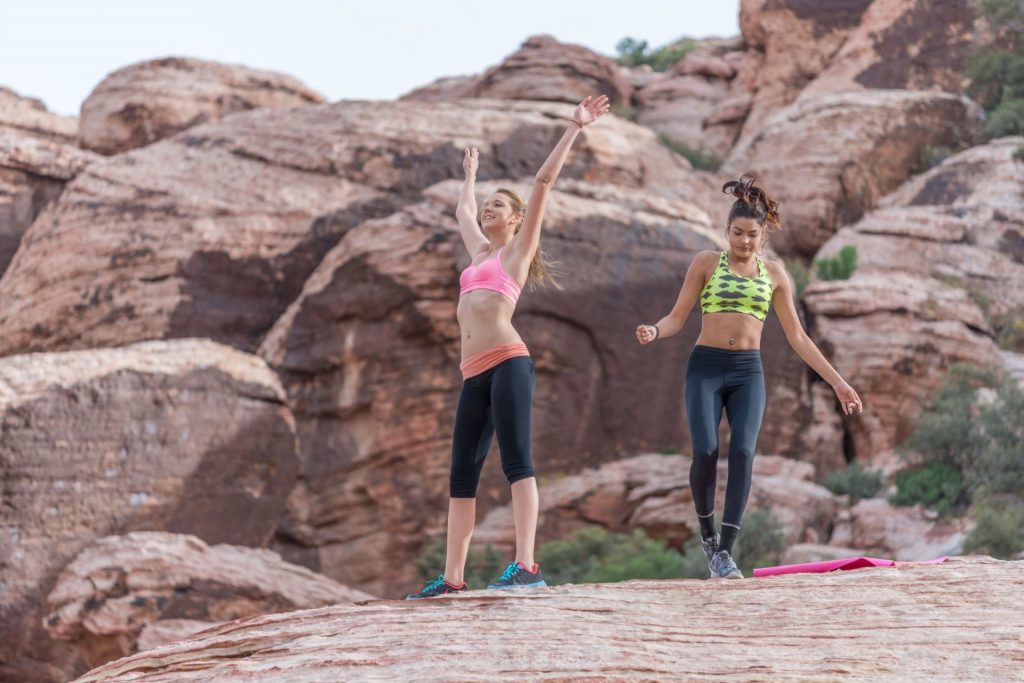
Cardio Exercises For Backpacking
Cardio exercise builds up your stamina, which is essential for king walks. Here are some cardio strengthening exercises that can help in improving stamina.
Walking: Start going for a 39-minute walk every day at least a few months before hiking. It will help your body in adapting to changing momentum. Gradually increase your walk duration, and you will be fit for a hike in no time.
Jumping Ropes: Jumping ropes help increase stamina. Juno ropes fast for about 30 to 40 seconds. Take a 2-minute break and June another 40 seconds set. Do at least 4 to 5 rounds daily.
Stepping Up: Carry the weight of about 10 to 20 and take a step with one leg on an elevated bench. Repeat with the other leg. Repeat with both legs 18 to 20 times daily.
It’s an easy and effective exercise to strengthen your cakes and hamstrung. It will also improve your pacing speed on rough terrains.
Cycling: Riding a bicycle is the best strength training for hiking exercise. It involves all body muscles workout that increases stamina.
Climbing Steps: It’s time for climbing stairs to train for hiking than taking elevators. Start climbing stairs up and down to increase your stamina and strengthen your muscles.
Proper Diet To Keep Yourself Healthy
You don’t only need muscle strength and energy for your trip. It’s essential to start a well-balanced diet plan at least a month before the main event. During the hike, take a break every 50 minutes for a snack. It’s a great way to keep your energy revitalized.
Conditioning For Hiking With A Rehearsal
If you are planning to thru-hiking, it’s best to take a short hiking trip nearby.
It will be a great rehearsal to know your weak points and know how to prepare for a hike. It will be a test session before the final exam. You can improve your weaknesses and make a list of things you are missing.
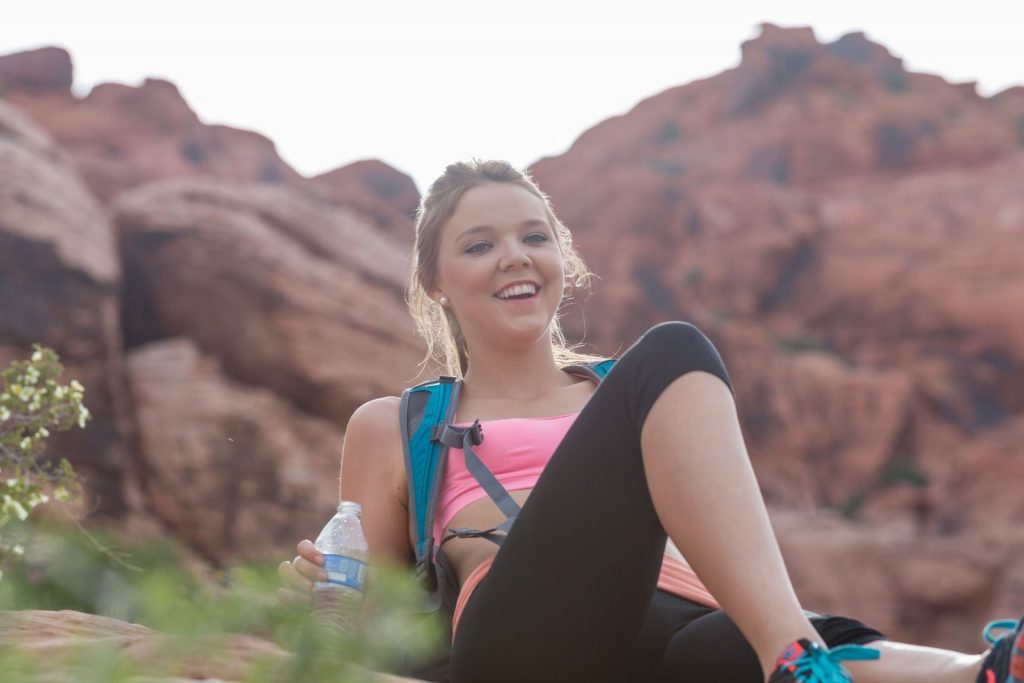
Hiking Workout Plan Include Stretching
Hiking involves constant physical exertion, and your body requires time to adjust. Stretch every day to prepare your body for physical activity. It will lower the chances of spreading or other injuries.
You can recover from stress and cramps quickly. Pay special attention to your lower body when stretching.
Hiking essentials
Make sure to pack proper hiking essentials for your trip. You will require
- Comfortable hiking boots
- Clothes according to season
- High-quality trekking poles
- Backpack
- Waterproof raincoat
- Headlamp
- Pocket knife
Strong Will To Accomplish Your Goal
When discussing how to get in shape for hiking, it’s not only mean physical health. You need to have a strong will to accomplish your goal. Hiking is the test for endurance, patience, and discipline. Prepare yourself mentally for a successful hike and a fantastic experience.
An important question often asked about how to prepare for a day hike is time duration. The answer is it varies for each individual’s fitness level and stamina. It’s recommended to start at least a month before the actual hiking trip for the best results.





